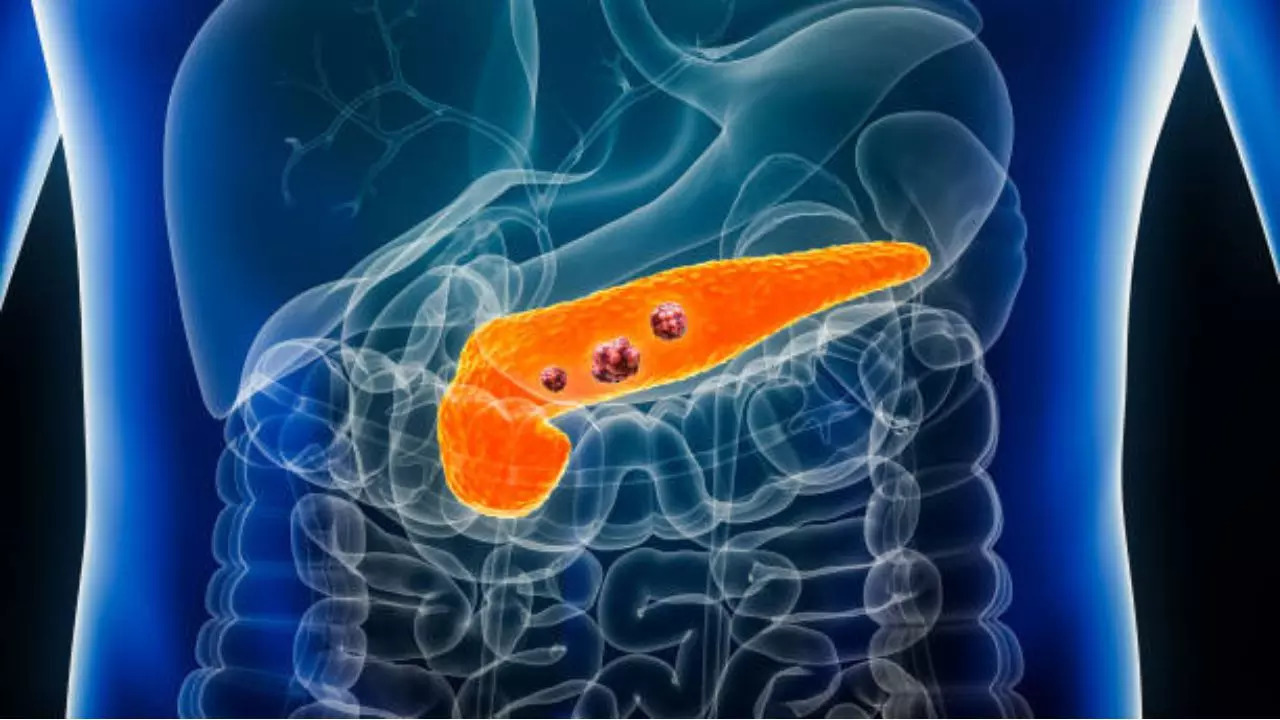Contents
New antibody testing technique leads to early diagnosis of pancreatic cancer
A breakthrough research using targeted antibodies could lead to more accurate and reliable diagnosis of pancreatic cancer – one of the most deadly because it cannot be easily detected. This new approach focuses on the targeted detection of specific antibodies in blood samples. Read on to learn more.

New research on pancreatic cancer focuses on targeted detection of specific antibodies in blood samples
A groundbreaking technique has been developed that could lead to more accurate and reliable diagnosis of pancreatic cancer – one of the deadliest cancers, mainly due to its late detection. According to the study published in the journal Angewandte ChemieThis new approach focuses on the targeted detection of specific antibodies in blood samples.
Researchers say existing markers used in screening for early detection are often too vague and lack sensitivity. This technique is based on the specific recognition of antibodies present in blood samples.
Research
The scientists say they have targeted autoantibodies that recognise the tumour-associated form of mucin-1 (TA-MUC1) – a glycoprotein found in glandular tissue and present at high levels in a variety of tumours, including pancreatic cancer. The glycosylation pattern of TA-MUC1 in tumours differs from its normal form, making it a key indicator of disease.
To detect these autoantibodies, the researchers also designed a series of synthetic glycopeptides that mimic segments of TA-MUC1 – carrying specific modifications to increase the likelihood of identifying subgroups associated with pancreatic cancer. These synthetic antigens were immobilized on gold nanoparticles, creating probes suitable for serological assays.
The team says that some nanoparticle probes have demonstrated a clear ability to distinguish between samples from cancer patients and healthy individuals by detecting tumor-associated autoantibodies.
These specific autoantibodies have shown significantly improved accuracy, with higher true positive or false positive ratios, than current clinical biomarkers for pancreatic cancer.
What is pancreatic cancer?
According to experts, pancreatic cancer occurs when cells in your pancreas — a gland in your abdomen that makes hormones that regulate blood sugar levels and enzymes for digestion, mutate and multiply uncontrollably, forming tumors. Doctors say most pancreatic cancers begin in the ducts of your pancreas.
Although early-stage pancreatic tumors don’t show up on imaging tests, many people don’t receive a correct diagnosis until the cancer has spread. Pancreatic cancer is also resistant to many common cancer drugs, making it extremely difficult to treat, experts say.
Currently, much of the research is focused on early detection through genetic testing and new imaging methods.
Statistics show that pancreatic cancer accounts for about 3 percent of all cancers in the United States. It is the 10th most common cancer in men and the eighth most common cancer in women.
Signs and Symptoms of Pancreatic Cancer
Doctors say that there are no symptoms of pancreatic cancer that can help diagnose this deadly disease. However, symptoms appear when the tumor starts affecting other organs of your digestive system. Some of the symptoms include:
- Jaundice
- dark urine
- light-colored stools
- epigastric pain
- Middle back pain
- Tiredness
- Itchy skin
- gas or bloating
- Loss of appetite
- blood clots
- Weight Loss
- Onset of diabetes
What causes pancreatic cancer?
Doctors don’t know what exactly causes pancreatic cancer, but there are some risk factors, including:
- Smoking
- Obesity and weight gain
- diabetes, especially type 2 diabetes
- exposure to certain chemicals, such as pesticides and petrochemicals
- chronic pancreatitis, which causes permanent inflammation in your pancreas
- Genetic syndromes with changes or mutations in genes, such as BRCA1 Or BRCA2 genes transferred from biological parent to child
Get the latest news on Times Now along with the latest updates and top headlines from health and around the world.


